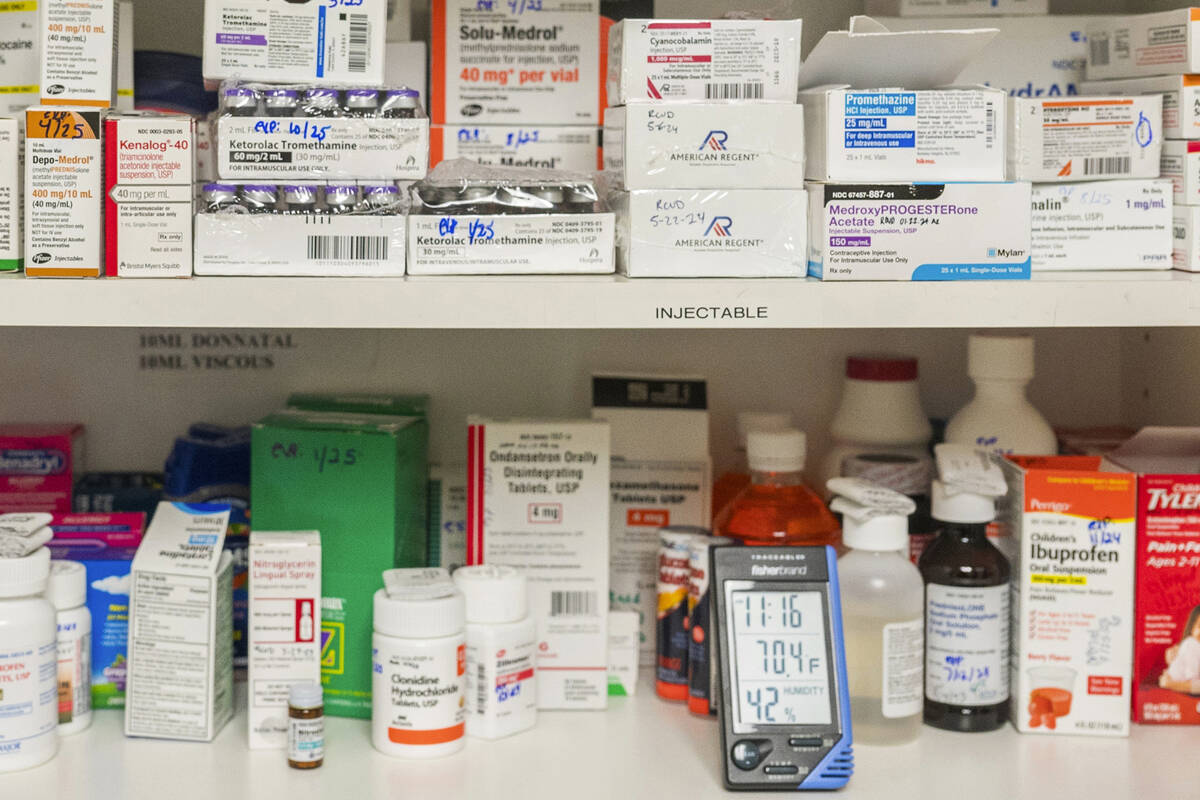Extreme heat, medicines can be a risky combo. Here’s what to know.
Extreme heat can raise the danger of heat-related illnesses and threaten health in a more subtle way — by amplifying the side effects of many common medications.
Hot weather, too, can damage medicines such as insulin that require refrigeration. Inhalers can explode. Epinephrine injectors such as EpiPens can malfunction. Meds delivered in the mail can deteriorate.
A look at common problems and solutions related to heat and medicine:
Which meds could cause problems?
Blood pressure pills that reduce fluid in the blood can lead to dehydration. Beta blockers for heart conditions can decrease blood flow to the skin and make you less aware of dangerous heat.
Some antidepressants can hinder your ability to stay cool. Aspirin and other over-the-counter pain relievers decrease fluid and sodium levels, making it harder to deal with high temperatures.
On top of that, the combination of heat and drug side effects can lead to lightheadedness and falls. Alcohol increases the danger, said pharmacist Bradley Phillips of the University of Florida College of Pharmacy.
You can learn more about your medications’ side effects and storage requirements at the National Library of Medicine’s MedlinePlus website.
Or talk to your doctor or pharmacist, Phillips said. Ask about how much water you should be drinking if you’re on medications that increase dehydration.
He recommends staying hydrated and “not relying on your body’s ability to tell you that you’re thirsty.”
Some medicines — antibiotics, antifungals and acne drugs — can heighten sensitivity to the sun, causing rashes and sunburns. If you’re taking them, stay under an umbrella or wear sun-protective fabrics and sunscreen, said Dr. Mike Ren, a family physician at Baylor College of Medicine in Houston.
“You might be on antibiotics, not think too much of it, go down to the beach and then come back with a whopping sunburn,” Ren said.
Storing medications for travel
Medication generally should be kept in a cool, dry place, unless it needs refrigeration. That can be challenging while traveling.
Before a summer road trip, check labels for the storage requirements of your meds. Carry medicine in a cooler when traveling by car, even if it doesn’t require refrigeration. The car’s trunk or glove box could get too hot for even room temperature storage.
Traveling by plane? It’s always best to keep medications in your carry-on bag in case your checked luggage is delayed or lost, and it can get too cold in the cargo hold.
What about mail-order drugs?
Mail-order pharmacies are responsible for keeping your drugs at safe temperatures during storage and transit. The best practice is to ship sensitive medicine in special packaging with ice packs and temperature monitors.
But that doesn’t always happen. Or a delivery can come at a bad time, said Ren, who recently helped his vacationing mother by bringing her delivery of supplements into her Houston home as the region faced soaring heat.
“If you know you’re going to be at work all day, or if you’re on vacation, and you get medications delivered, you definitely don’t want that sitting outside in the hot 100-degree sun,” Ren said. If you think your mail-order medication has been damaged by the heat, call the pharmacy to report the problem.
More research needed
Researchers in the United States and Australia say some of the common warnings about heat and drugs don’t have a lot of scientific evidence behind them. Ollie Jay at the University of Sydney found backing for only four of the 11 medication categories that the World Health Organization lists as concerns with high heat.
He suggests changing behavior, not medications, like staying out of the heat.
Dr. Renee Salas, an emergency room physician at Massachusetts General Hospital, said as climate change accelerates, there’s a need to know which medicines are the riskiest in the heat.
“We don’t have that answer yet, and it’s one that we need to rapidly figure out,” Salas said.


















